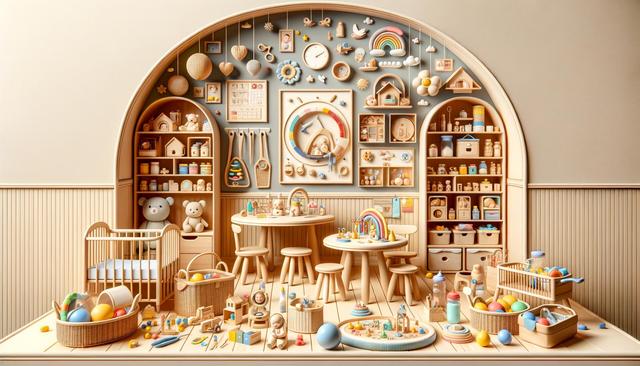Understanding the Role of Daycare Providers
When people think about daycare work, they often picture a room full of children playing while adults supervise from a distance. However, the reality of working in daycare is far more complex and meaningful. Daycare professionals are not just caretakers—they are early childhood educators, emotional guides, and role models. Their responsibilities include planning daily educational activities, observing developmental milestones, and creating a safe and nurturing environment for every child. In many cases, daycare providers are among the first adults outside the family to influence a child’s social and emotional development.
They must be trained to recognize signs of developmental delays, understand age-appropriate learning, and maintain strong communication with parents. On a typical day, a daycare worker might switch between teaching alphabet songs, mediating toddler disputes, and comforting a child experiencing separation anxiety. This multifaceted role requires patience, empathy, and a genuine passion for child development.
Early Learning in a Daycare Setting
Daycare is a foundational space for early learning, offering structured activities that support cognitive growth. Through age-appropriate curriculum and play-based learning, children build skills that prepare them for school and life beyond. These programs include literacy exposure, number recognition, and problem-solving exercises tailored to each developmental stage.
Some of the typical learning activities in quality daycare programs include:
- Story time to encourage language development
- Simple science experiments to spark curiosity
- Creative arts and crafts to build fine motor skills
- Group games to teach cooperation and rules
Daycare centers integrate these learning opportunities seamlessly into the daily routine, ensuring that children are engaged while developing crucial academic and life skills. The structured environment also helps build attention span and resilience, which are vital for future classroom success.
Building Emotional and Social Skills
In addition to academic readiness, daycare plays a significant role in emotional development. Children learn how to express their feelings, manage frustration, and interact with peers respectfully. These experiences are vital during the early years, when children are forming the foundation of their identity and interpersonal skills.
Daycare professionals support emotional growth by:
- Modeling positive behavior and empathy
- Helping children navigate conflicts constructively
- Encouraging self-regulation and mindfulness
- Providing consistent routines that foster a sense of security
Social interaction within the group setting also introduces children to the concepts of sharing, listening, and taking turns. These interactions are essential for developing communication skills and creating a sense of community among peers.
The Importance of Structure and Routine
Structure is a cornerstone of effective daycare services. Children thrive when they know what to expect, and a consistent routine provides stability. Structured days help reduce anxiety and behavioral issues, as children can anticipate transitions and understand daily expectations.
Key elements of a well-structured daycare routine include:
- Designated times for meals, naps, and free play
- Predictable transitions between activities
- Clear rules and consistent reinforcement
- Daily opportunities for both independent and group learning
These routines not only support emotional well-being but also teach children time management and responsibility. By participating in a structured environment, children develop habits that contribute to long-term academic and personal success.
Is Daycare Work What You Think It Is?
For those considering a career in daycare or evaluating whether daycare is the right choice for their child, it’s important to understand the depth of what the role entails. Daycare work involves more than supervising play—it’s about fostering growth, building trust, and supporting families. It demands dedication, professional training, and a deep understanding of childhood development.
Many daycare professionals pursue certifications in child development or early education, and they often attend regular training to stay up to date on safety standards and educational strategies. The work can be emotionally taxing, but it is also highly rewarding, especially when caregivers witness the milestones and progress of the children in their care.
Parents who choose daycare are not simply seeking a place for their child to stay during work hours—they are investing in their child’s future. By selecting a high-quality daycare, they provide their children with early learning opportunities, emotional support, and a structured social environment that can positively shape their development for years to come.
Conclusion: The Value of Quality Daycare
For families and caregivers alike, understanding the true nature of daycare work is essential. It’s a profession rooted in responsibility, education, and compassion. Quality daycare services offer more than convenience—they provide children with a nurturing environment where learning, emotional development, and social skills are prioritized. Whether you’re considering a career in the field or evaluating care options for your child, recognizing the depth of daycare work can lead to more informed and meaningful decisions that benefit everyone involved.




Leave a Reply